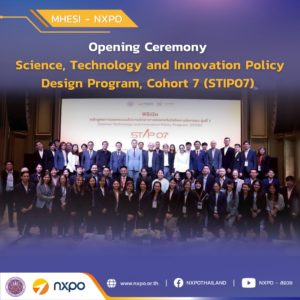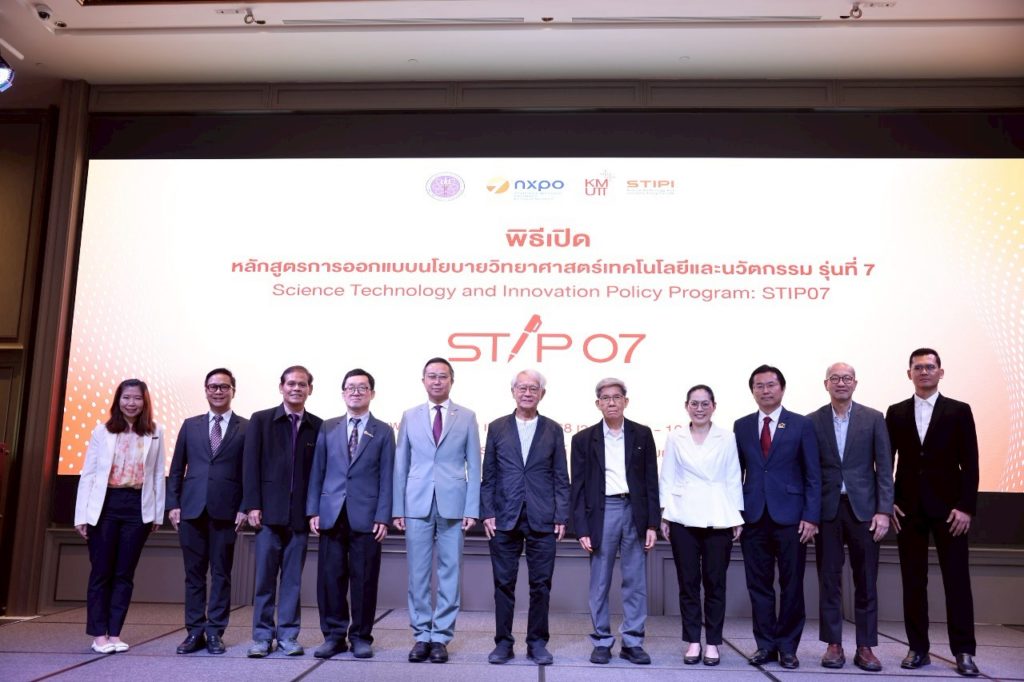
NXPO, in collaboration with the Science, Technology and Innovation Policy Institute (STIPI) of King Mongkut’s University of Technology Thonburi (KMUTT), held the opening ceremony of the Science, Technology and Innovation Policy Design Program, Cohort 7 (STIP07) on 10 April 2025, at Grande Centre Point Lumphini Bangkok. The event was presided over by NXPO President Dr. Surachai Sathitkunarat and KMUTT Vice President Asst. Prof. Dr. Santi Charoenpornpattana.
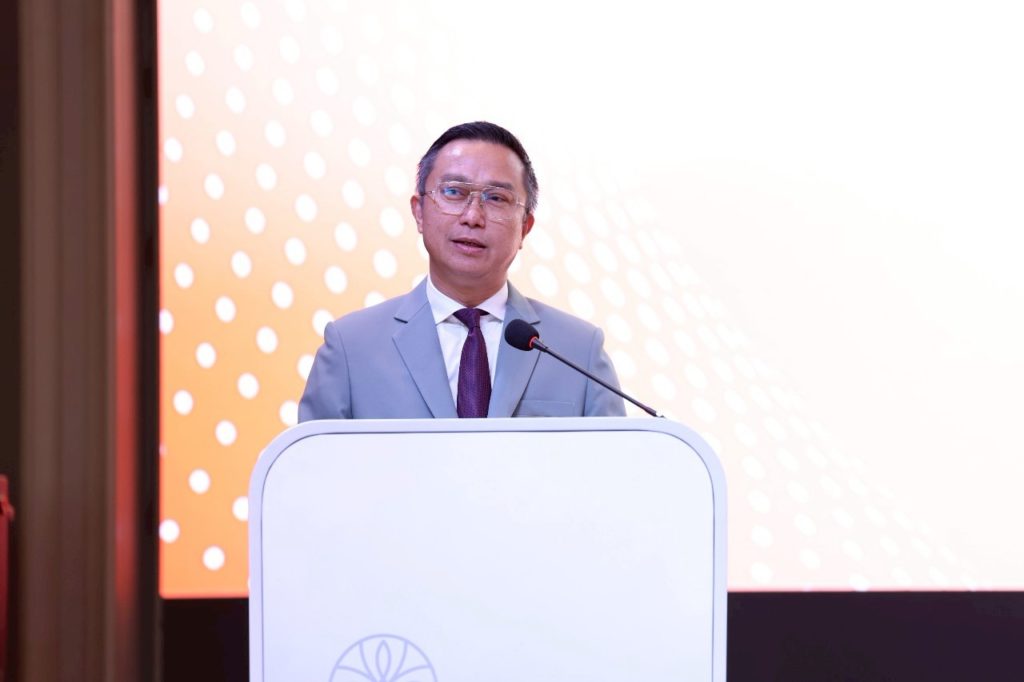
Dr. Surachai noted that NXPO and STIPI co-organized this program in recognition of the growing importance of effective policymaking and the need to cultivate a new generation of policy practitioners. The program emphasizes practical policy design and implementation, supported by collaboration across sectors—particularly among policymakers. It also aims to foster a network of science, technology, and innovation (STI) policy professionals to drive policy-informed national development.
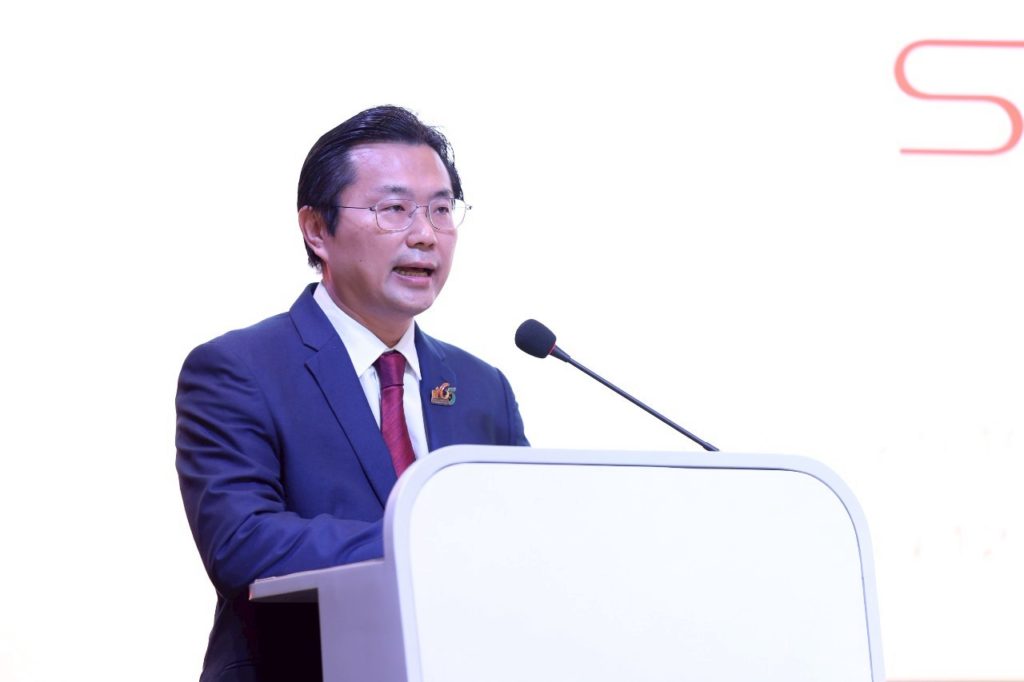
Dr. Santi highlighted that more than 300 participants from diverse sectors have completed earlier cohorts, forming a strong alumni network dedicated to crafting evidence-based policies that support national development and industrial transformation.
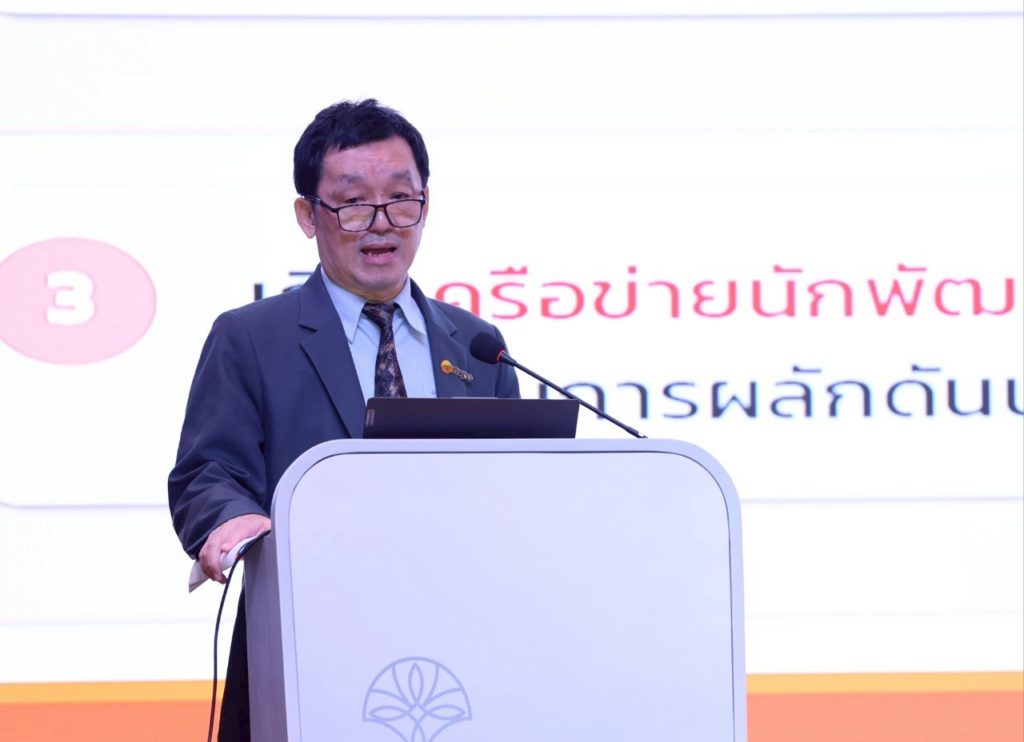
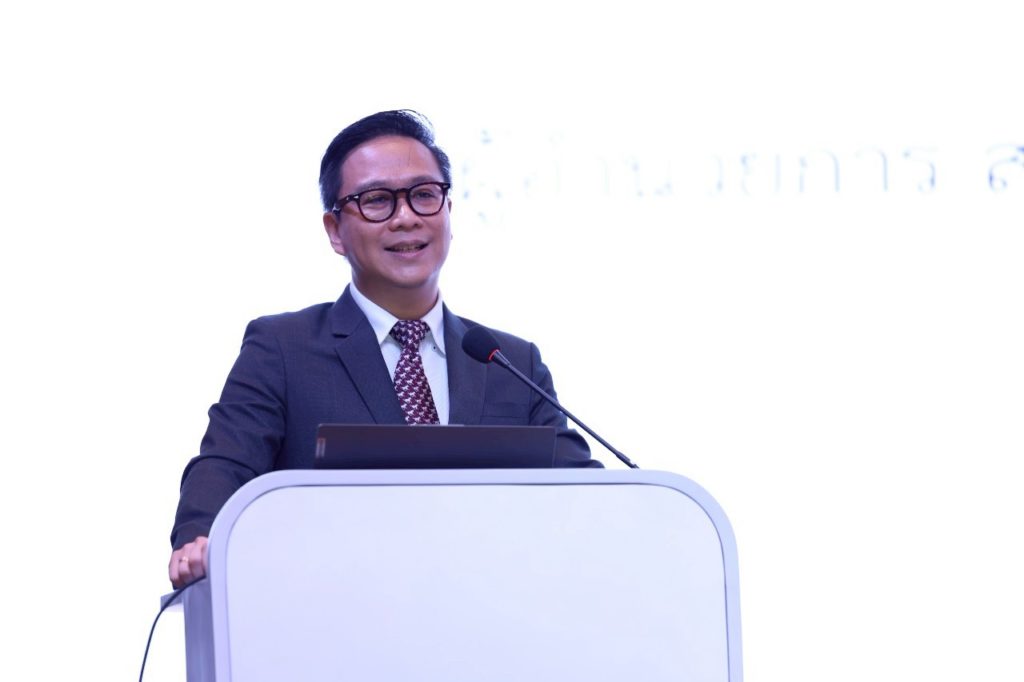
Dr. Suchat Udomsopagit, Assistant to the President at NXPO, provided an overview of the STIP program, outlining its mission to strengthen capacities in higher education, science, research, innovation, and public policy. Through the development of real-world policy proposals, participants gain hands-on experience and sharpen their skills. STIPI Director Dr. Bank Ngamarunchot further elaborated on the program’s learning framework—from understanding the national landscape to mastering analytical tools and policy design processes. The curriculum includes group projects, field visits, and networking activities. This year, STIP07 welcomes 59 participants from 36 organizations.
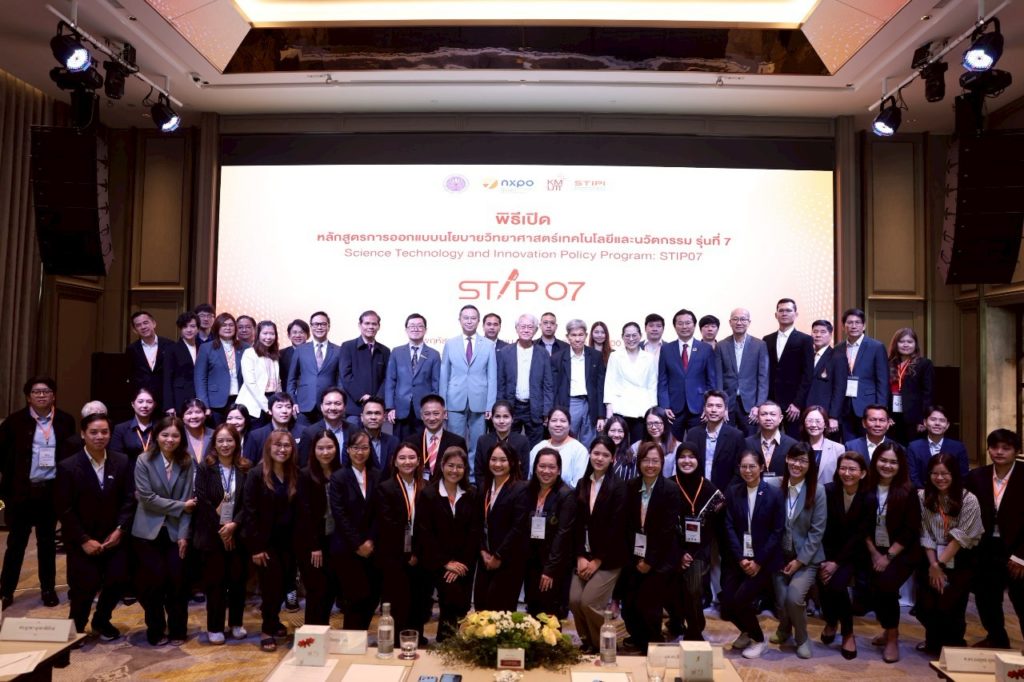
Following the ceremony, Dr. Surachai delivered a keynote lecture on strategic foresight. He explored the implications of rapid global changes, noting that conventional policymaking approaches may be insufficient. Thailand currently faces a complex landscape of challenges—including the climate crisis, AI disruption, pandemics, demographic shifts, and geopolitical tensions. In response, Thailand must develop a “future compass” to guide national investment, workforce development, and STI strategies—beginning with foresight as a structured approach to anticipate and prepare for future scenarios.
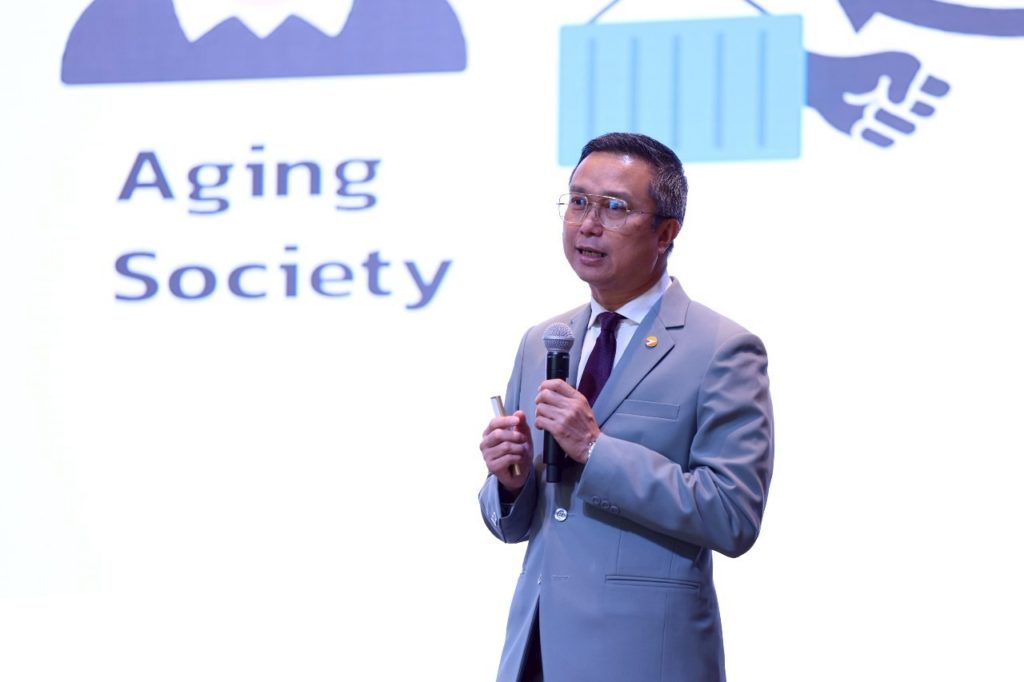
Dr. Surachai emphasized that future-oriented analysis enhances forecasting, strengthens resilience to uncertainty, supports data-driven decision-making, and enables innovation. It also contributes to sustainable development, global cooperation, and science diplomacy.
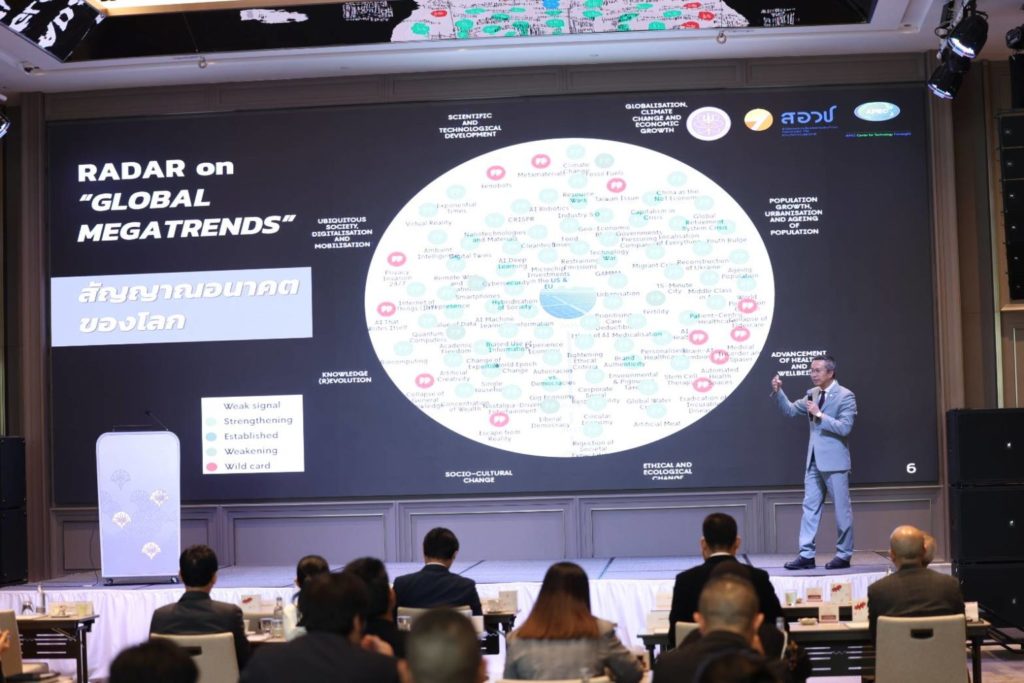
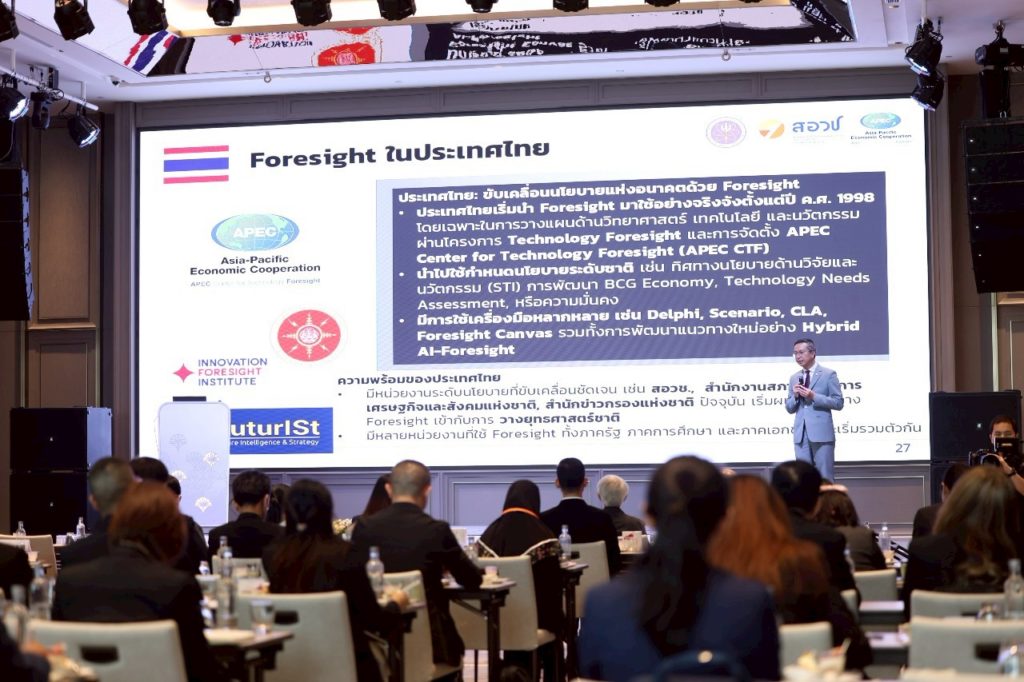
Looking ahead, profound changes are expected in key sectors. Higher education will increasingly rely on AI and online platforms. AI and quantum technologies will reshape economies, which may face stagnation, protectionism, or new power dynamics. Organizational operation will shift toward deeper human–AI collaboration, faster decision-making, and flexible, innovation-driven teams. Meanwhile, quantum computing and DNA-based data storage will revolutionize information systems, and the Internet of Things (IoT) will evolve into the Internet of Everything (IoE), raising new challenges for data governance and privacy.
“Policymakers must adopt a forward-looking perspective to develop responsive, adaptable policies. These policies must undergo regular review and be supported by adequate funding to ensure real-world impact. Equally important, stakeholders must recognize their value,” Dr. Surachai concluded.

NXPO Vice President Dr. Siriporn Pittayasophon also delivered a lecture on the strategic direction of higher education, science, research, and innovation, emphasizing three core pillars: the innovation-based economy, the grassroots economy, and the green economy. Together, these pillars aim to achieve balanced and inclusive economic growth. Key initiatives include accelerating the growth of Innovation-Driven Enterprises (IDEs), establishing the E-Commercial and Innovation Platform (ECIP), promoting the University Holding Company (UHC) mechanism, and supporting community enterprise networks through the Social Integrated Enterprise (SIE) model. She also discussed initiatives to support the future food industry, such as scaling up enterprises, attracting investment, forming R&D clusters, and establishing standardization systems.
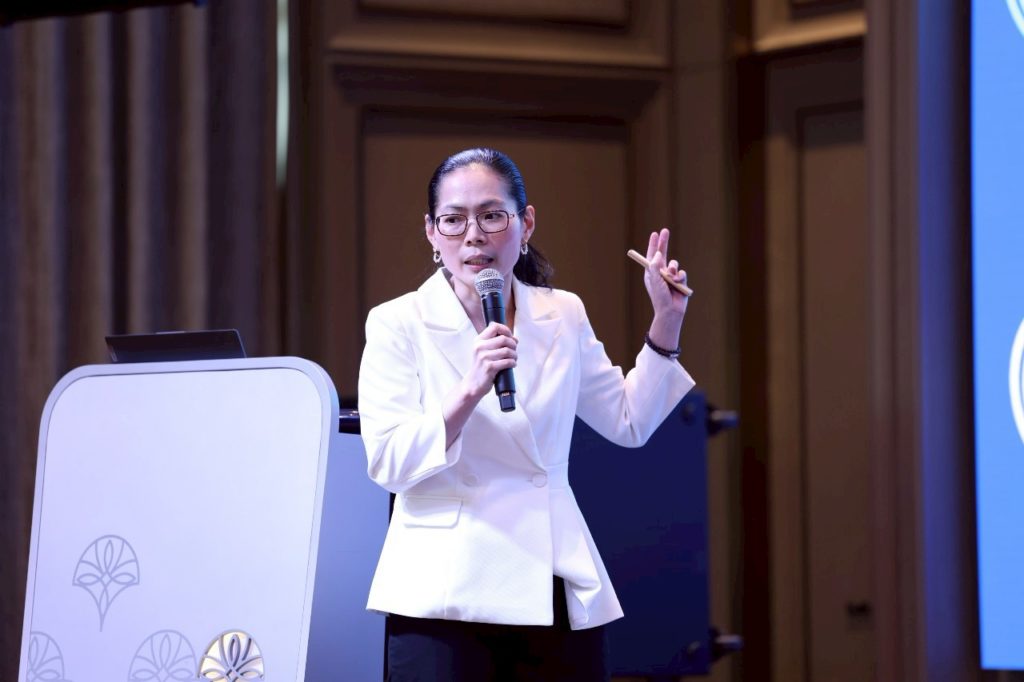
Efforts to develop cultural districts and creative cities include building digital cultural information systems and maps and encouraging local entrepreneurship rooted in existing cultural capital. Another critical role of NXPO is strengthening the regulatory environment to support innovation development. Notable achievements include the issuance of the Prime Minister’s Office Regulation on Public–Private Partnerships in Research and Innovation (B.E. 2566) and revised procurement guidelines to better facilitate R&D and academic services by higher education institutions.


